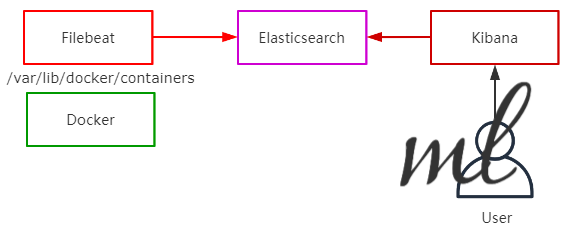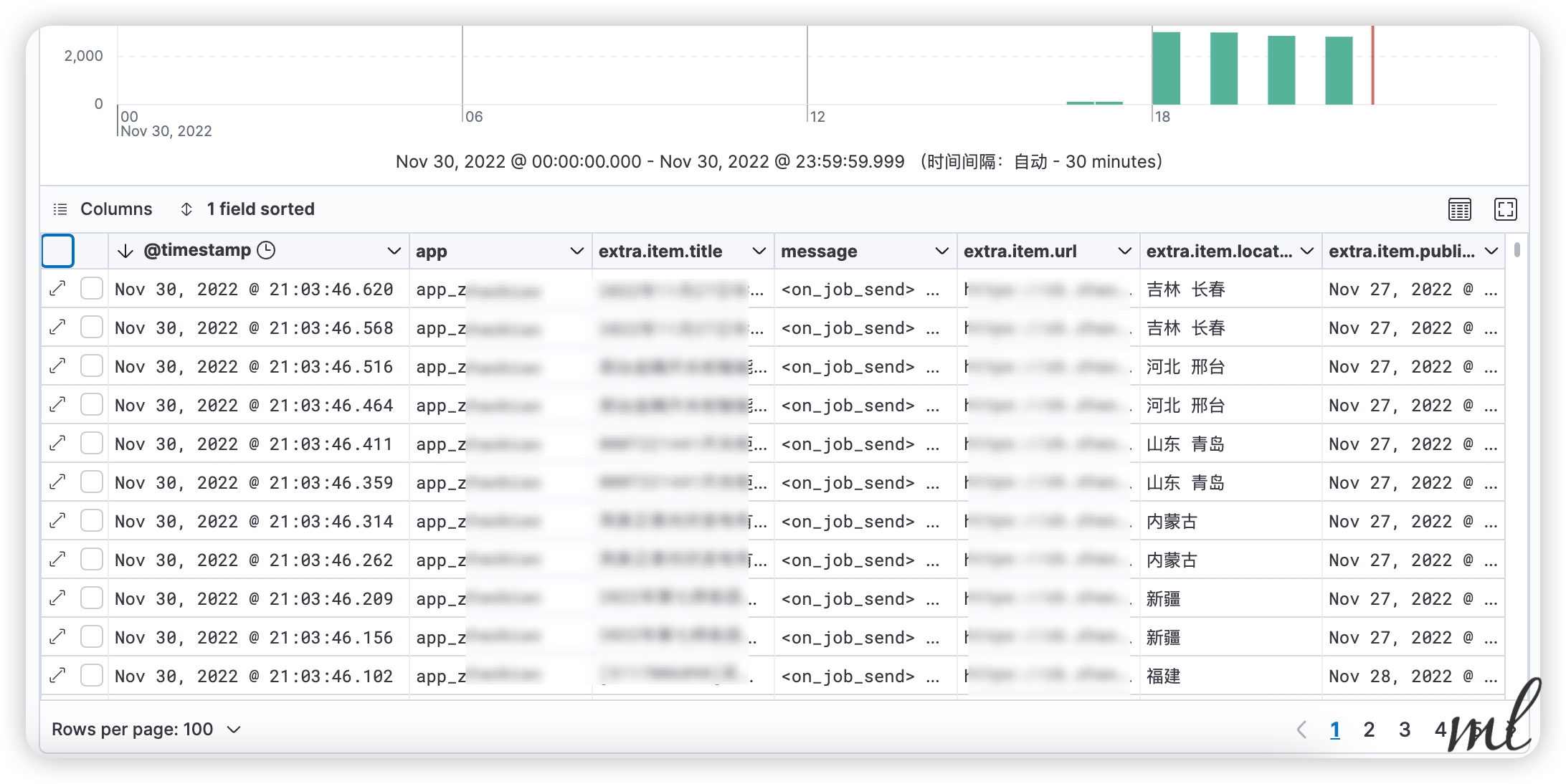小记filebeat日志收集
原创2022年11月30日
提示
本文并非面向新手,如果你还不了解filebeat,不了解它的配置,建议先去官网学习。
一版
项目早期使用的是logstash收集日志,后来由于logstash的性能问题,改为使用filebeat收集日志。filebeat使用go语言重写,性能极高,无依赖,配置简单。
在使用filebeat时,一开始采用的是程序将日志输出到文件,然后将日志文件映射给filebeat容器,filebeat容器将日志文件读取后发送到es。
所以,我会在程序里注册日志文件的路径,使日志输出到指定文件中。
# 伪代码,会将日志输出到文件
def register_logger(app_name: str, file_or_path: str):
logger.add(file_or_path, format=JsonFormatter("task").format, rotation="200 MB", retention="10 days")
return logger.bind(app_name=app_name)
register_logger(app_name="app", file_or_path="/app/logs/app.log")
随后,我将配置filebeat的配置文件,使其准确的读取目标文件。
filebeat.inputs:
- type: log
enabled: true
paths:
- "/app/logs/*.log"
……
二版
随后第二个版本,我不再对外输出日志文件,而是直接将日志输出到stdout,然后将docker容器的log文件夹映射给filebeat容器,这样的好处就是,不管起多少个容器,只要符合我条件的日志,都将被filebeat收集到。未来会将filebeat服务集成到基础系统中,使得热部署的机器自动就能收集日志。

def register_logger(app_name: str):
logger.add(sys.stdout, format=JsonFormatter(app_name).format)
return logger.bind(app_name=app_name)
filebeat.inputs:
- type: filestream
enabled: true
encoding: utf-8
paths:
# 读取docker容器的日志文件
- "/var/lib/docker/containers/*/*-json.log"
parsers:
- container:
stream: stdout
- ndjson:
target: ""
add_error_key: true
message_key: log
……
完整的文件
docker-compose.yml
version: '3.3'
services:
filebeat:
container_name: filebeat
# 使filebeat容器能够读取docker容器的日志文件
user: root
image: docker.elastic.co/beats/filebeat:8.2.0
ports:
- "5044:5044"
volumes:
# 将自定义的filebeat配置文件映射到容器中
- ./filebeat/filebeat.yml:/usr/share/filebeat/filebeat.yml
# 将docker容器的日志文件映射给filebeat容器,并且设置权限read-only
- /var/lib/docker/containers:/var/lib/docker/containers:ro
environment:
- TZ=Asia/Shanghai
filebeat.yml
setup.ilm.enabled: false
setup.template.enabled: false
filebeat.inputs:
# 8.0版本后,filebeat的配置文件发生了变化,需要使用filestream,而不是log,也不是docker
- type: filestream
enabled: true
encoding: utf-8
paths:
# 读取docker容器的日志文件
- "/var/lib/docker/containers/*/*-json.log"
parsers:
# 读取docker容器的日志文件,只读取stdout的日志
- container:
stream: stdout
# json解析,由于docker日志都是{"log": {……}}包裹的,所以需要设置message_key
- ndjson:
target: ""
add_error_key: true
message_key: log
processors:
- decode_json_fields:
fields: ["message"]
max_depth: 3
target: ""
- drop_fields:
fields: ["ecs", "agent", "log", "host", "input"]
output.elasticsearch:
hosts: ["http://elasticsearch:9200"]
username: elastic
password: elastic
kibana

Loading...